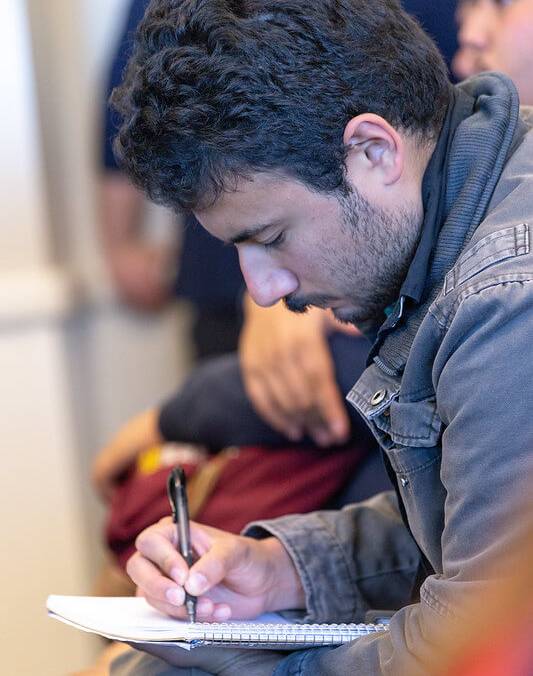Communication Studies
ApplyProgram Spotlight
Communication Studies focuses on verbal and nonverbal communications, critical thinking and research, and multicultural communication, concentrating on the ways humans interact with one another and how this affects the world around them.
Students enrolled in the Communication Studies Program at Skyline College can expect to become proficient in multiple areas of communication, including public speaking, interpersonal communication, small group communication, intercultural communication, and argumentation and debate.

In order to succeed in Communications, students will develop strong interpersonal and critical thinking skills as well as excellent written and verbal communication skills. Students enrolled in the Communication Studies Program at Skyline College can expect to become proficient in multiple areas of communication, including public speaking, interpersonal communication, small group communication, intercultural communication, and argumentation and debate. The College offers one Associate Degree and two Associate Degrees for Transfer in Communications that provide a clear path for transfer to a four-year educational institution.
Career Outlook
Studying Communications provides a foundation of interpersonal, writing and critical thinking skills essential in almost any career from the sciences or finance to marketing or public relations.
A degree in Communications can be a gateway to a variety of career trajectories including journalism, law, advertising, public relations, marketing, communications, sales, real estate, technical writing and much more. Salary ranges for jobs within these trajectories vary greatly. Public Relations Specialists in California make an average of $92,580 per year according to the U.S. Department of Labor. Real Estate Sales Agents in California make an average of $112,940 per year.
Check out the Communication Studies classes offered in upcoming semesters.
| Program | Type | Total Units |
|---|---|---|
| Communication Studies for Transfer 2.0 | AA-T | 60 Units |
- Effective Communication: Deliver a message using strategies that adapt appropriately to the purpose of a situation; including the specific audience and cultural & psychological climate.
- Effective Communication: Describe the effects of communication, including listening skills, on the perception of human relationships in social & cultural contexts
- Critical Thinking: Demonstrate effective problem-solving communication that leads to successful conflict management by researching verifiable information that supports logically organized main points and claims in a message.
- Citizenship: Communicate ethical core values and individual cultural identity in a variety of academic, personal, vocational and civic situations.
Communication Studies Faculty
